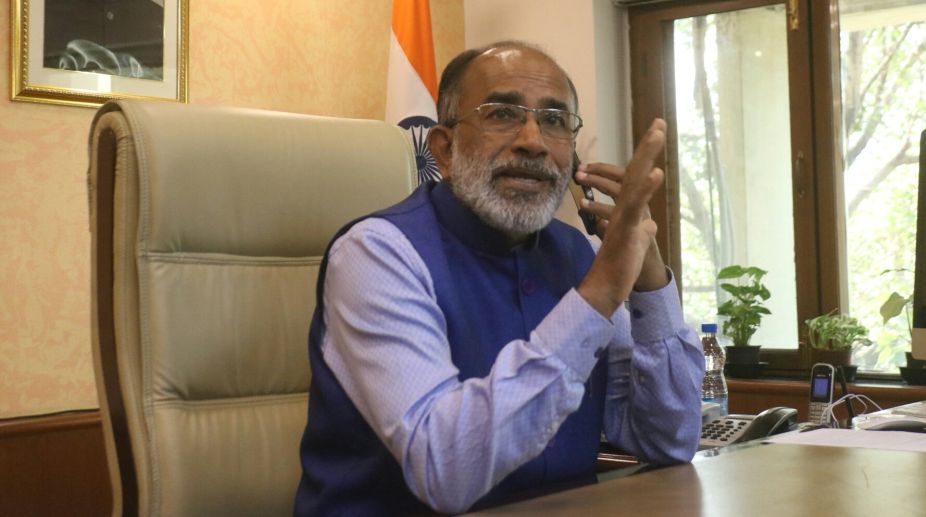Aadhaar Good Governance portal launched to streamline approval process
The government has launched Aadhaar Good Governance portal to streamline approval process for authentication requests.

K.J. Alphons (Photo: IANS)
In a bid to defend Aadhaar, Union Minister of State for Electronics and Information Technology K J Alphons claimed that the Centre has protected the data and hacking is not possible because the government use the latest technology which is upgraded every day.
In his special address at the valedictory function of the #Future digital summit in Kochi, the minister said, “Not one case of biometric data leak has come up in the past three-and-a-half years. The Centre has protected the data and this [hacking] is impossible because we are using the latest technology and upgrading it every day.”
Advertisement
“We have no problem while filling up 10 pages of data for getting the American visa. We have absolutely no problem going and putting up our fingerprint and getting the whole body naked before the white man at all. But when the government of India asks for your name and address, there is a massive revolution in the country saying that it is an intrusion into the privacy,” he added.
Advertisement
On Thursday, the Unique Identification Authority of India told the Supreme Court that the biometric and demographic information of people who have enrolled for Aadhaar was secure, while no one will suffer loss of benefits for its lack.
In a first-ever power point presentation in the open court, the constitution bench of Chief Justice Dipak Misra, and Justice A.K. Sikri, Justice A.M. Khanwilkar, Justice D.Y. Chandrachud and Justice Ashok Bhushan was told that the data in encrypted form was “very very secure”.
UIDAI CEO Ajay Bhushan Pandey said they start collecting data from the birth of a child which is twice updated at the age of five and later at 15 years and that 1.2 billion people have already enrolled.
He also said that a number once given to an enrolled person would not be repeated even after their death.
Advertisement